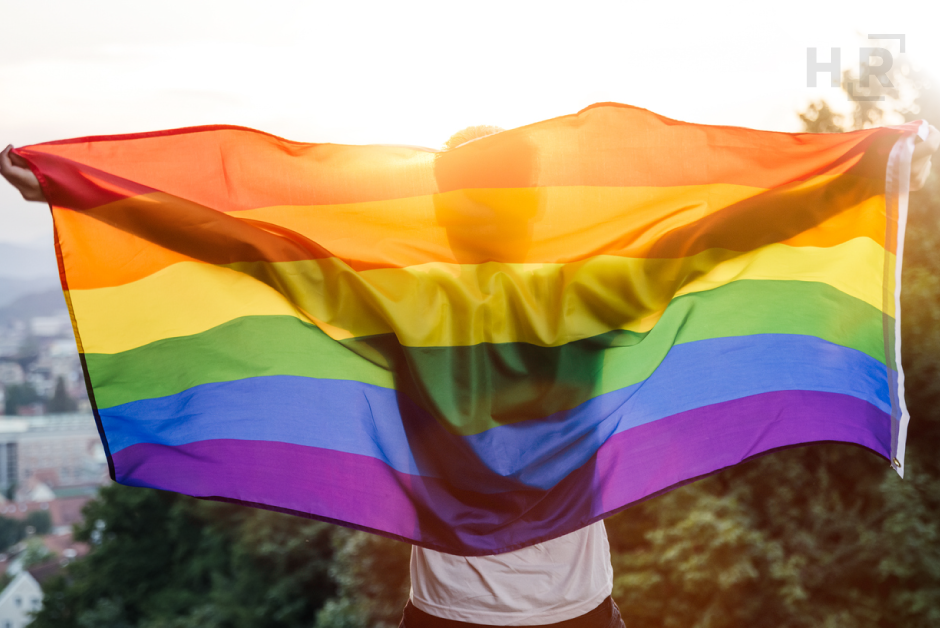An Employer’s Guide To Inclusive Language
Pronoun use is vital to inclusive language that acknowledges and respects an individual’s gender identity. Our blog guides employers through pronoun use in the workplace.

This article was first published to Forbes on June 22, 2023.
Pronoun use is vital to inclusive language that acknowledges and respects an individual’s gender identity. Typical gender pronouns include “he,” “she,” and “they,” or specific pronouns like “ze” or “hir.” A lawsuit filed by the EEOC in March highlights the importance of proper pronoun use in the workplace. In the suit, a transgender man was subjected to repeated harassment, including disturbing questions about his transition and repeated intentional use of female pronouns when addressing him.
In the workplace, instead of assuming someone’s pronouns, workers are encouraged to ask, “What pronouns do you use?” Pronouns may also be used in email signatures and online profiles to help colleagues and clients refer to individuals correctly in written communications. By openly sharing pronouns, employers create a norm where individuals feel comfortable expressing their gender identity, and others can use the correct pronouns when referring to them.
Utilizing gender-neutral terms helps to be inclusive and avoid assumptions about an individual’s gender identity. Gender-neutral terms are words or phrases that do not specify or assume a person’s gender.
For example, in conversations, using terms such as “partner” instead of “husband” or “wife” or “parent” instead of “mother” or “father” helps to create an inclusive environment by avoiding assumptions or reinforcing gender stereotypes. Using gender-neutral job titles ensures that positions are not associated with a specific gender, such as “Server” instead of “Waitress” or “Waiter.” When addressing teams or groups, it is helpful to use gender-neutral terms that avoid assumptions about gender. For example, “Everyone” or “Team” instead of “Guys” or “Ladies and gentlemen.” Employers may revise company policies, guidelines, and other documents to ensure they use gender-neutral language. Replacing “his” or “her” with “their” within policies and procedures or rephrasing sentences to avoid gender-specific references promotes inclusivity and avoids excluding or alienating any gender.
Employers should avoid language and beliefs perpetuating stereotypes On June 15, 2020, the Supreme Court held that Title VII of the Civil Rights Act prohibits employment discrimination based on sexual orientation or gender identity. In celebration of Pride Month and the anniversary of the landmark Bostock v. Clayton County Supreme Court decision, the U.S. Equal Employment Opportunity Commission (“EEOC”) recently issued a statement acknowledging the progress made in protecting LGBTQ+ rights in the workplace. Pivotal in the EEOC’s message is that workplace behaviors and language that are not inclusive predicate harassment. As a result, employers should adopt practices fostering a respectful work environment embracing inclusive language.
Inclusive language entails using words, phrases, and expressions that respect and include all individuals, regardless of gender identity, sexual orientation, race, religion, or ability. It aims to create an atmosphere that values diversity, promotes empathy, and avoids marginalizing or excluding any individual or group. As we celebrate Pride Month and embrace the LGBTQ+ community, it becomes paramount to understand and adopt inclusive language. At its most basic, embracing inclusive language within the workplace involves adopting practices concerning associated with sexual orientation or gender identity. It’s important not to make assumptions about an individual’s sexual orientation or gender identity based on appearance, mannerisms, or personal life. Refrain from using phrases like “that’s so gay” or making assumptions about someone’s interests or abilities based on their sexual orientation or gender identity.
The EEOC recently filed a lawsuit against an employer who maintained stereotypical constructs concerning femininity, asserting, in part, that lesbian employees did not align with management’s ideal declaring, “All the lesbians are fired!”. Management commonly typecast women and used derogatory language, often referring to women as “dumb,” “stupid,” “lazy,” and “ignorant.” “All employers must protect against harassment of employees based on their sexual orientation or because of their gender,” said Melinda Caraballo, deputy director of the EEOC’s Phoenix District Office in a statement. “To do otherwise creates a hostile work environment for these employees.”
When drafting job requisitions, employers are reminded that the Bostock decision prohibits employers from limiting opportunities for career growth and leadership positions based on stereotypes or biases related to sexual orientation or gender identity. Instead, employers must ensure that LGBTQ+ individuals have equal access to promotions, training, and development opportunities. The language used to encourage applicants for employment should welcome a diverse candidate pool. The EEOC reinforced this point when its Office of Federal Operations found, in part, that an employer created a hostile work environment when it commented that a job candidate was gay and not a “good fit” because his personality was “too big for this office.”
Chair Charlotte Burrows noted that the EEOC is “committed to robust education and outreach about the Bostock decision.” Further, the EEOC’s enforcement of Bostock identifies an impetus toward workplace inclusion for LGBTQ+ employees. Embracing inclusive language is an ongoing journey that requires continuous education, awareness, and empathy. By adopting inclusive language not only during Pride Month but throughout the year, employers can create a workplace culture that values diversity, fosters respect, and drives innovation.
Release Date: June 27, 2023

Alonzo Martinez
Alonzo Martinez is Associate General Counsel at HireRight, where he supports the company’s compliance, legal research, and thought leadership initiatives in the background screening industry. As a senior contributor at Forbes, Alonzo writes on employment legislation, criminal history reform, pay equity, AI discrimination laws, and the impact of legalized cannabis on employers. Recognized as an industry influencer, he shares insights through his weekly video updates, media appearances, podcasts, and HireRight's compliance webinar series. Alonzo's commitment to advancing industry knowledge ensures HireRight remains at the forefront of creating actionable compliance content.